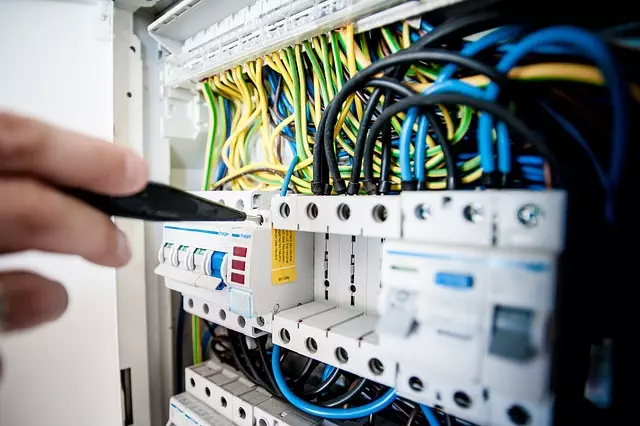Foundation repair specialists address uneven foundations caused by settlement, shifting soils, poor construction, or tree roots, especially in areas with expansive clay soils or seismic activity. They offer tailored solutions like soil stabilization and deep foundation repairs, evaluating soil types for optimal results. Techniques vary from injecting cement mixtures to installing new piles, emphasizing long-lasting materials for cost-effective fixes. Regular inspections and proactive measures prevent structural damage, making Foundation Repair Specialists crucial for maintaining property stability.
Uneven foundations can be a common concern, leading to structural issues and unsightly cracks. This comprehensive guide delves into the heart of the problem, exploring the causes and effects of uneven bases. We highlight the pivotal role of soil fixing in foundation repair, emphasizing its impact on stabilization and reinforcement. From evaluating soil conditions to selecting robust materials, this article offers insights for effective solutions. Learn when to engage Foundation Repair Specialists, uncover signs of distress, and explore preventive measures to safeguard your structure’s integrity.
Understanding Uneven Foundations: Common Causes and Effects

Uneven foundations are a common problem that can have significant impacts on structures. Caused by various factors, including settlement, shifting soil, poor initial construction, and tree roots, these issues can lead to visible cracks in walls, uneven floors, and even structural damage over time. Foundation repair specialists often encounter such challenges, especially in areas with expansive clay soils or regions prone to seismic activity.
Understanding the root causes is crucial for implementing effective solutions. For instance, soil shrinkage or swelling due to moisture changes can exert immense pressure on foundations. Additionally, trees and their roots can disrupt the soil around a building’s foundation, leading to settlement. Recognizing these problems early on is vital, as it allows for prompt intervention by professionals who offer specialized services to restore stability and protect investments in real estate.
The Role of Soil Fixing in Foundation Repair

Soil fixing plays a pivotal role in addressing uneven foundations, serving as a crucial intervention for Foundation Repair Specialists. By enhancing soil stability and strength, it effectively prevents further subsidence and misalignment of structural elements. This is particularly important for older structures or regions with unstable soil compositions, where natural settling or erosion can compromise the integrity of the foundation over time.
Foundation repair specialists employ various soil-fixing techniques to stabilize the base of buildings. These methods include the introduction of reinforcing materials like geogrids and wire mesh, which strengthen the soil and prevent excessive movement. Additionally, chemical stabilization involves using specific agents to improve soil bearing capacity and reduce shrinkage, thereby ensuring a more solid foundation for the structure.
Evaluating Soil Conditions for Effective Treatment

Evaluating soil conditions is a critical step in effective foundation repair and stabilization. Foundation repair specialists begin by assessing the type, compaction, and moisture content of the soil. Soils can range from sandy to clay-like, each with unique properties that influence the stability of structures above them. For instance, expansive clay soils shrink and swell with moisture changes, leading to uneven settling and potential damage to foundations.
Understanding these conditions allows specialists to tailor treatment methods accordingly. They may employ techniques like soil stabilization, where additives are mixed into the soil to improve its strength and reduce movement, or deep foundation repair, which involves installing additional support structures below the existing foundation to stabilize it further. Accurate evaluation ensures that the chosen method addresses the specific challenges posed by the soil conditions for optimal results.
Techniques for Soil Stabilization and Reinforcement

Uneven foundations can be a common issue, but there are various techniques for soil stabilization and reinforcement that can help restore structural integrity. One of the most effective methods is deep foundation repair, where specialists insert new piles or rods into the ground to provide additional support. This process is particularly useful for older structures with failing footings or for new constructions on unstable soils. Foundation repair specialists often use advanced equipment and methods like micropile drilling, which offers precision and minimal disruption to surrounding areas.
Another technique involves soil stabilization treatments such as deep vibro-replacement, where a mixture of cement or other stabilizers is injected into the soil to improve its bearing capacity. This process can be combined with reinforcement using steel bars or mesh to create a robust foundation system. For milder cases, simple measures like adding a layer of geotextile fabric or using gravel fill can help consolidate loose soils and prevent further settlement. These methods are often more cost-effective and less invasive, making them ideal for smaller-scale projects or areas with limited access.
Choosing the Right Materials for Long-Lasting Results

When it comes to soil fixing for uneven foundations, selecting the appropriate materials is paramount for achieving long-lasting results. Foundation repair specialists often recommend using high-quality, durable compounds that can withstand environmental factors like erosion and moisture fluctuations. This involves choosing between various options such as polymeric cements, lightweight fill materials, or even geotechnical products designed specifically for soil stabilization.
The right materials should not only provide immediate support but also promote long-term stability. For instance, polymeric cements can create a strong bond with the existing soil, improving its structural integrity. Similarly, lightweight fill materials like expanded polystyrene (EPS) can reduce the overall load on the foundation while enhancing soil compaction. Foundation repair specialists will assess the specific needs of your property and recommend solutions that are not only effective but also cost-efficient.
When to Call Foundation Repair Specialists: Signs and Prevention

If you notice signs of uneven or sinking foundations, it’s crucial to act swiftly and call in Foundation Repair Specialists. While some minor issues can be addressed with DIY methods, significant foundation problems often require professional intervention. Specialists are equipped to handle complex cases that may involve structural damage, heave or settlement, or even moisture-related issues beneath the surface.
Prevention is key when it comes to foundation health. Regular inspections by experts can help identify potential problems early on. Addressing moisture issues, ensuring proper drainage, and maintaining adequate soil compaction around your property’s foundation can all contribute to preventing uneven foundations. Prompt action and expert care can save you from costly repairs down the line.
